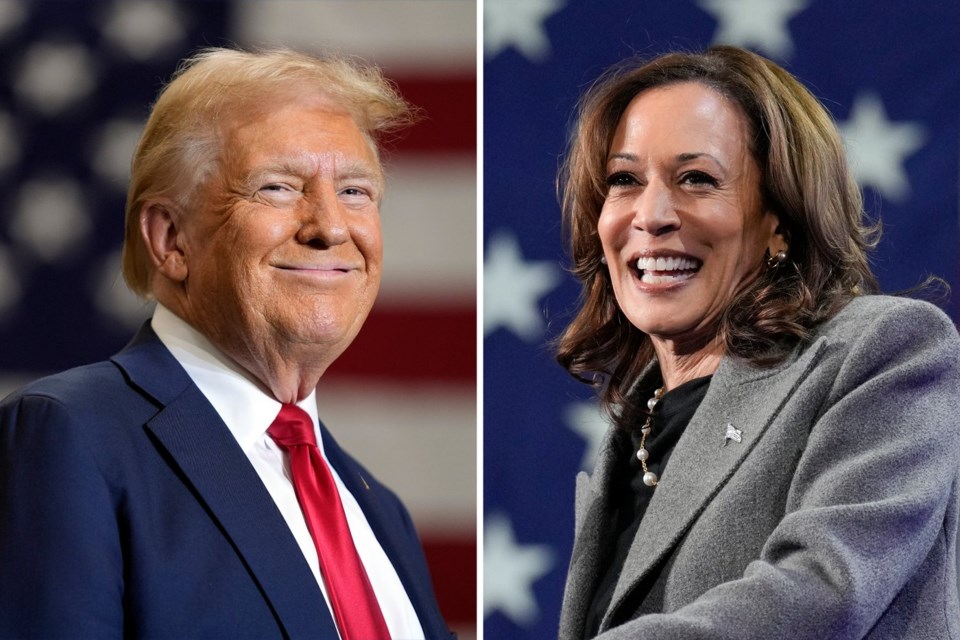EDMONTON — Stephen Winters says watching the U.S. election campaign from Canada as a dual citizen is like a parent watching their kid play sports.
"When you're on the sideline it makes you more nervous than when you're in it," Winters said in an interview from Calgary.
"My friends and family at home are like, 'Don't worry that much' because they're there and they know things are going OK. When you're outside, it can look worse than it is."
Winters, from Minnesota, teaches linguistics at the University of Calgary. He is one of about 600,000 eligible voters in Canada able to cast their vote in Tuesday’s election.
Winters said he has cast his absentee ballot but has taken a step back from reading political news because of how helpless he feels afterwards.
"I voted for Kamala Harris and the Democratic representative for Congress," he said.
"I don't think she's the greatest candidate but she's definitely the best option.”
He says he chose not to vote for former president and Republican nominee Donald Trump because of his foreign policy and Russia's invasion of Ukraine.
"My wife is Ukrainian, and Trump's relationship with (Russian President) Putin, whatever the heck it is, that's really a problem.
“We have friends and family in Ukraine who are in danger because of that war and I don't think Trump supports the Ukrainian cause."
Dual citizen Georganne Burke said she has also submitted her absentee ballot from Toronto.
A political consultant who moved to Canada from New York State in 1987, Burke says she cast her vote for Trump because he would help the economy, and she agrees with his foreign policy.
"I was a diehard Democrat, worked very hard for the Democratic party when I lived in the United States. The party left me. I did not leave the party," said Burke, who is also the head of the Canadian chapter of Republicans Overseas.
She rejects opposition accusations that another Trump presidency would not respect the checks and balances of democracy.
"Donald Trump is not a menace to society. Donald Trump is not Hitler. He's not a dangerous man. He has the best interests of the United States at heart."
Burke said watching the U.S. election from Canada has been difficult mainly because she can't help recruit voters to Trump's campaign in the U.S. as she did in the past working as a consultant south of the border.
"It's hard to watch it from here (for) somebody like me who's a complete, total political junkie. I would love to get down there and get my hands dirty and do stuff, but I can't."
The best she can do, she said, is ensure relatives and friends in America and Canada mark their ballots.
"We have to be sure that the United States … that their economy is healthy, that there is security there, because if things go bad for them, it's a hop, skip and a jump to us both economically and actually physically,” she said.
Jacob Wesoky, executive vice-chair of Democrats Abroad and a 20-year-old American student at Montreal's McGill University, said every vote counts.
"The voters in Canada could decide this election,” Wesoky said.
"I voted for Kamala Harris and Tim Walz, and then Democrats down the ballot.
"Everybody here is extremely invested in this election. Everybody's watching it closely.
"A lot of people are very nervous."
This report by The Canadian Press was first published Nov. 2, 2024.
Fakiha Baig, The Canadian Press


